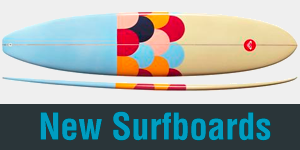Typical Beginner Board Progression?
Typical Beginner Board Progression?
![]() by Beginner77 » Mon Sep 18, 2017 10:00 am
by Beginner77 » Mon Sep 18, 2017 10:00 am
- Beginner77
- Surfer
- Posts: 95
- Likes: 0 post
- Liked in: 0 post
- Joined: Sun Mar 13, 2016 10:08 pm
Re: Typical Beginner Board Progression?
![]() by jaffa1949 » Mon Sep 18, 2017 11:10 am
by jaffa1949 » Mon Sep 18, 2017 11:10 am
Perhaps a way to go would be to buy a good foam board similar or better than what you rent. At least the same length, learn beach traffic , paddling out catching green waves and developing your skills.
A lot of reasonable foam boards are fun and inexpensive.
The time of when you go hard will be when you start to get adventurous in what you are trying to do.
Please though, post pictures of the styles of board you are considering for an upgrade then we can advise you.
Maybe a comment of your home beach might tailor that advice further.
-

jaffa1949 - Surfing Legend
- Posts: 8179
- Likes: 0 post
- Liked in: 0 post
- Joined: Thu Jul 08, 2010 12:01 am
- Location: The super secret point breaks of Ober Österreich ( how many will notice the change)
Re: Typical Beginner Board Progression?
![]() by Oldie » Mon Sep 18, 2017 5:03 pm
by Oldie » Mon Sep 18, 2017 5:03 pm
-

Oldie - Local Hero
- Posts: 470
- Likes: 0 post
- Liked in: 0 post
- Joined: Thu Apr 07, 2016 2:44 pm
- Location: Düsseldorf, Germany
Re: Typical Beginner Board Progression?
![]() by Beginner77 » Mon Sep 18, 2017 6:08 pm
by Beginner77 » Mon Sep 18, 2017 6:08 pm
The reason for me asking is that I've been windsurfing a few years, and in that sport everyone starts on wide 180-200L boards (we measure boards by their volume) and small 3-4 metre squared sails without battens. After 3-6 months of windsurfing, everyone (without exception) moves down to a 140-150L board and up to a 5-6m sail, and nobody uses the beginner kit anymore; it's almost like a different sport once you step up. Most people will stay on that kit for 2, 3 or even 5 years. Because of this progression, everyone rents for the beginner stage for 3-6 months and then most people buy that second board - I'm still sailing mine after 3-4 years with no plans to change. The reason for my post was that I was wondering if there was an equivalent in surfing, whereby most people outgrow the foamies so rapidly that nobody buys them, and then there's another level beyond that which sees most people through the next few years. From what you're both saying though, beginner equipment in surfing isn't quite as unique to beginners; it seems that the first board you try could see you through the first few years at least?
- Beginner77
- Surfer
- Posts: 95
- Likes: 0 post
- Liked in: 0 post
- Joined: Sun Mar 13, 2016 10:08 pm
Re: Typical Beginner Board Progression?
![]() by oldmansurfer » Mon Sep 18, 2017 6:35 pm
by oldmansurfer » Mon Sep 18, 2017 6:35 pm
-

oldmansurfer - Surf God
- Posts: 8193
- Likes: 0 post
- Liked in: 0 post
- Joined: Mon Aug 12, 2013 9:10 pm
- Location: Kauai
Re: Typical Beginner Board Progression?
![]() by Oldie » Mon Sep 18, 2017 6:54 pm
by Oldie » Mon Sep 18, 2017 6:54 pm
I see the same in surfing. Some people seem to rather stay on the beach than taking longer boards if waves are small. Some others will just take their longboard and enjoy it. Key is to have fun.
-

Oldie - Local Hero
- Posts: 470
- Likes: 0 post
- Liked in: 0 post
- Joined: Thu Apr 07, 2016 2:44 pm
- Location: Düsseldorf, Germany
Re: Typical Beginner Board Progression?
![]() by Beginner77 » Mon Sep 18, 2017 8:29 pm
by Beginner77 » Mon Sep 18, 2017 8:29 pm
Good to hear from another windsurfer Oldie
- Beginner77
- Surfer
- Posts: 95
- Likes: 0 post
- Liked in: 0 post
- Joined: Sun Mar 13, 2016 10:08 pm
Re: Typical Beginner Board Progression?
![]() by oldmansurfer » Mon Sep 18, 2017 8:53 pm
by oldmansurfer » Mon Sep 18, 2017 8:53 pm
-

oldmansurfer - Surf God
- Posts: 8193
- Likes: 0 post
- Liked in: 0 post
- Joined: Mon Aug 12, 2013 9:10 pm
- Location: Kauai
Re: Typical Beginner Board Progression?
![]() by Beginner77 » Mon Sep 18, 2017 9:40 pm
by Beginner77 » Mon Sep 18, 2017 9:40 pm
- Beginner77
- Surfer
- Posts: 95
- Likes: 0 post
- Liked in: 0 post
- Joined: Sun Mar 13, 2016 10:08 pm
Re: Typical Beginner Board Progression?
![]() by jaffa1949 » Mon Sep 18, 2017 9:51 pm
by jaffa1949 » Mon Sep 18, 2017 9:51 pm
Beginner77 wrote:I've definitely got no interest in a shortboard. I was merely wondering when a beginner progresses from a foamie to a hard board, like the Fish, Mini-Mal etc that board guides mention.
It really is a how long is a piece of string? question.
I suggest look at all the foamies available where you are, post pictures and we can help you choose.
Rent a hard board similar in size to what you have been riding have a go and see.
Doing will answer some of your questions.
Where do you surf?
-

jaffa1949 - Surfing Legend
- Posts: 8179
- Likes: 0 post
- Liked in: 0 post
- Joined: Thu Jul 08, 2010 12:01 am
- Location: The super secret point breaks of Ober Österreich ( how many will notice the change)
Re: Typical Beginner Board Progression?
![]() by oldmansurfer » Tue Sep 19, 2017 1:22 am
by oldmansurfer » Tue Sep 19, 2017 1:22 am
-

oldmansurfer - Surf God
- Posts: 8193
- Likes: 0 post
- Liked in: 0 post
- Joined: Mon Aug 12, 2013 9:10 pm
- Location: Kauai
Re: Typical Beginner Board Progression?
![]() by Big H » Tue Sep 19, 2017 2:08 am
by Big H » Tue Sep 19, 2017 2:08 am
-

Big H - Surf God
- Posts: 3408
- Likes: 0 post
- Liked in: 0 post
- Joined: Mon Feb 09, 2015 5:40 pm
- Location: Bali
Re: Typical Beginner Board Progression?
![]() by waikikikichan » Tue Sep 19, 2017 3:08 am
by waikikikichan » Tue Sep 19, 2017 3:08 am
Beginner77 wrote:The reason for me asking is that I've been windsurfing a few years, and in that sport everyone starts on wide 180-200L boards (we measure boards by their volume) and small 3-4 metre squared sails without battens. After 3-6 months of windsurfing, everyone (without exception) moves down to a 140-150L board and up to a 5-6m sail, and nobody uses the beginner kit anymore; it's almost like a different sport once you step up. Most people will stay on that kit for 2, 3 or even 5 years. Because of this progression, everyone rents for the beginner stage for 3-6 months and then most people buy that second board - I'm still sailing mine after 3-4 years with no plans to change. The reason for my post was that I was wondering if there was an equivalent in surfing, whereby most people outgrow the foamies so rapidly that nobody buys them, and then there's another level beyond that which sees most people through the next few years.
Question:
1) In Windsurfing, how do you get moving or what gets you onto a wave ?
2) In Surfing, how do you get moving or what gets you onto a wave ?
3) In Windsurfing, How often do you collide with others when riding a wave ?
4) In Windsurfing, How times did you repair dings on your board ?
-

waikikikichan - Surf God
- Posts: 4783
- Likes: 0 post
- Liked in: 0 post
- Joined: Mon Sep 01, 2014 11:35 pm
- Location: Tokyo, Japan
Re: Typical Beginner Board Progression?
![]() by Beginner77 » Tue Sep 19, 2017 8:02 am
by Beginner77 » Tue Sep 19, 2017 8:02 am
I'd rather not give details of where I surf I'm afraid, I've been a victim of online bullying before that got pretty freaky and it's made me very wary. It's not you, it's the other people reading this (as it was in that case). Conditions are variable at the three locations I go to and can be anything from 0.5 metre up to 2 metres. Obviously at the moment I'm in the white water, but soon I'll start having a go at green waves, and obviously they'll be at the lower end of that range. I presume I'll then start moving up to larger waves and starting to perfect my turns etc - I was just wondering where boards come into that. I'm currently using standard rental 8' foamies.
- Beginner77
- Surfer
- Posts: 95
- Likes: 0 post
- Liked in: 0 post
- Joined: Sun Mar 13, 2016 10:08 pm
Re: Typical Beginner Board Progression?
![]() by waikikikichan » Tue Sep 19, 2017 9:05 am
by waikikikichan » Tue Sep 19, 2017 9:05 am
waikikikichan wrote:Question:
1) In Windsurfing, how do you get moving or what gets you onto a wave ?
2) In Surfing, how do you get moving or what gets you onto a wave ?
3) In Windsurfing, How often do you collide with others when riding a wave ?
4) In Windsurfing, How times did you repair dings on your board ?
Well since you won't step up and answer the questions, I'll take my best guesses. You can correct me if I am wrong.
1) The WIND propels the windsurf board. The wind is the motor.
2) The surfer needs to PADDLE to get the board moving. YOU are the motor.
3) Usually 3 to 5 Windsurfers don't go on the same wave, in surfing it is. At some beginner surf spot 10-20 surfers go for the same wave.
4) Banging rails, fins across the deck, Boards coming backwards, etc. happens in surfboarding. So a lot of dings, glass shatters, sunken fin plugs to fix on hard boards. I don't know how often Windsurfers get dings.
So to answer your question " when can a beginner progress from a sponge board " ?
1) When he can master paddling and catching the wave on his current board.
2) When he can control his board to avoid other and progress beyond basic maneuvers. ( when he is actually surfing the board not just riding the board )
3) When he can stop banging into others, walls, parking lot asphalt and at the showers.
Soft boards are great not only because they're safer for you but also safer for others.
They're boxy and floaty plus they give good grip for your toes to sink in to.
They don't give dings and don't get dings ( but can be sliced by a fin )
If you drop it at the showers, no worries. When you learn to deal with wind and tight stairwells, then get a hard board.
They're forgiving because they flex and absorb the wave's imperfections ( while if on a hard board you might get bucked off )
As for the progression: learn on 3 feet over your head, basics on 2 feet over, carve and venture to bigger steeper on 7'6" to 6'6", in the 6'ish your in the shortboard / Fish realm. When you're ready for each step..... it's up to you. It's not a race to get on a shortboard ( which many newbies think it is )
-

waikikikichan - Surf God
- Posts: 4783
- Likes: 0 post
- Liked in: 0 post
- Joined: Mon Sep 01, 2014 11:35 pm
- Location: Tokyo, Japan
Re: Typical Beginner Board Progression?
![]() by Beginner77 » Tue Sep 19, 2017 9:16 am
by Beginner77 » Tue Sep 19, 2017 9:16 am
- Beginner77
- Surfer
- Posts: 95
- Likes: 0 post
- Liked in: 0 post
- Joined: Sun Mar 13, 2016 10:08 pm
Re: Typical Beginner Board Progression?
![]() by Namu » Wed Sep 20, 2017 5:12 am
by Namu » Wed Sep 20, 2017 5:12 am
Assuming you weigh between 150-200lbs, a 9' x 23" x 3" with approximately 70L of volume makes for a good starting point. Other features of the board like the tail, rocker, or fin setup will be depend on the type of waves you surf.
This is just my advice, others on the forum have done just fine surfing smaller 7-8' fun boards and mini-mals.
-

Namu - Surfer
- Posts: 86
- Likes: 0 post
- Liked in: 0 post
- Joined: Mon Jun 06, 2016 9:47 pm
- Location: Central Coast California
Re: Typical Beginner Board Progression?
![]() by Beginner77 » Wed Sep 20, 2017 8:02 am
by Beginner77 » Wed Sep 20, 2017 8:02 am
Thanks Namu for the advice. I'm 1.77m & 70kg (154lbs and 5.10'), so I'm guessing your figures are about right.
- Beginner77
- Surfer
- Posts: 95
- Likes: 0 post
- Liked in: 0 post
- Joined: Sun Mar 13, 2016 10:08 pm
Re: Typical Beginner Board Progression?
![]() by saltydog » Wed Sep 20, 2017 2:48 pm
by saltydog » Wed Sep 20, 2017 2:48 pm
-

saltydog - SW Pro
- Posts: 501
- Likes: 0 post
- Liked in: 0 post
- Joined: Mon Jun 13, 2016 5:29 am
- Location: So Cal
Re: Typical Beginner Board Progression?
![]() by OlegLupusov » Thu Sep 21, 2017 3:37 am
by OlegLupusov » Thu Sep 21, 2017 3:37 am
-

OlegLupusov - Local Hero
- Posts: 322
- Likes: 0 post
- Liked in: 0 post
- Joined: Thu Oct 29, 2015 4:53 pm
Similar topics
RELATED: Surfing Travel Tips, Spot Locations and Info
Author: HaoleKook
Replies: 3
Latest
-
19 hours ago by Kulharin3 comments
-
11 days ago by Swimmy Tim5 comments
-
12 days ago by BaNZ3 comments
-
17 days ago by BoMan6 comments
-
20 days ago by hannaconner5 comments
-
1 month ago by BaNZ4 comments
-
1 month ago by HaoleKook4 comments
-
1 month ago by Jimgem2 comments
- The team • Delete all board cookies • All times are UTC


